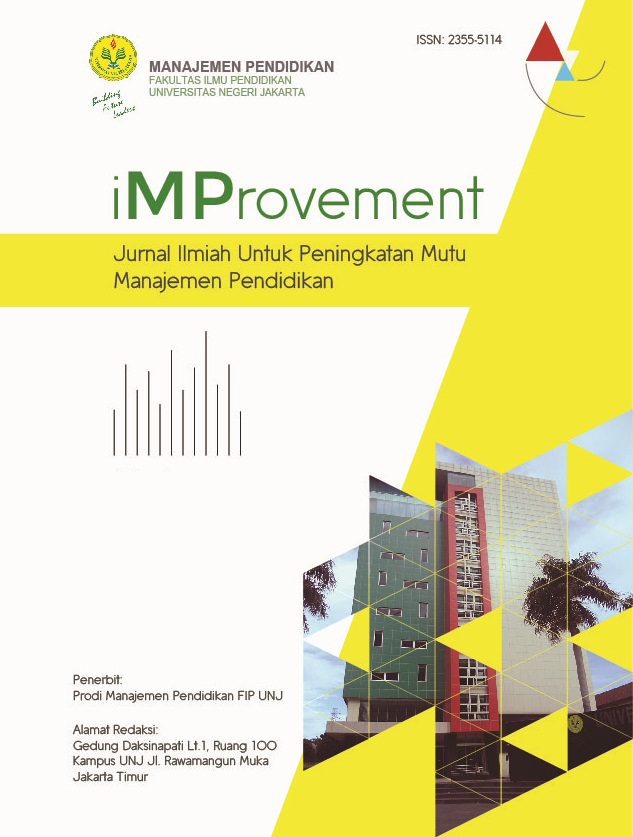The Influence Of The Principal's Leadership And School Culture On The Job Satisfaction Of Private High School Teachers
DOI:
https://doi.org/10.21009/improvement.v10i2.37295Keywords:
Principal's Leadership, School Culture, Teacher Job SatisfactionAbstract
Based on basic education data (DAPODIK) at the high school level in Bekasi Regency in the Odd Semester of the 2022/2023 Academic Year, the number of students of 44 public high schools in Bekasi Regency reached 45,043 students. This means that as many as 77.85% of students attend public high schools. While the number of students attending private high schools is only around 12,811 students (22.15%). As a result, as many as 60 private high schools were declared unhealthy/unhealthy, due to a shortage of students. If this continues, it is likely that in the following year, many private high schools in Bekasi Regency will close because they do not get students. Of course, this must be overcome with a strategy to improve the quality of schools, one of which is to improve the performance of private high school teachers through job satisfaction. The purpose of this study was to determine the influence of the principal's leadership and school culture on the job satisfaction of private high school teachers in Bakasi District. This study used a quantitative approach with an explanatory method with a population of all private high school teachers in Bekasi Regency totaling 848 people. Data was collected using questionnaires and analyzed using path analysis. The results of the pathway analysis showed that there was a positive influence of the principal's leadership on teacher job satisfaction. The percentage of influence contribution is 37.5%. This means that the magnitude of the influence of the principal leadership variable (X1) on teacher job satisfaction (Y) is 37.5%. The results of the pathway analysis show that there is a positive influence of school culture on teacher job satisfaction. The percentage of influence contribution is 43.7%. This means that the magnitude of the influence of school culture variables (X2) on teacher job satisfaction (Y) is 43.7%.
Downloads
Published
How to Cite
Issue
Section
License
Copyright (c) 2023 Dimas Auzan Rahman, Unifah Rosyidi, Fakhrudin Arbah

This work is licensed under a Creative Commons Attribution-NonCommercial-ShareAlike 4.0 International License.
Authors who publish with this Journal agree to the following terms:
- Author retain copyright and grant the journal right of first publication with the work simultaneously licensed under a creative commons attribution licensethat allow others to share the work within an acknowledgement of the work’s authorship and initial publication of this journal.
- Authors are able to enter into separate, additional contractual arrangementfor the non-exclusive distribution of the journal’s published version of the work (e.g. acknowledgement of its initial publication in this journal).
- Authors are permitted and encouraged to post their work online(e.g. in institutional repositories or on their websites) prior to and during the submission process, as it can lead to productive exchanges, as well as earlier and greater citation of published works.
-
Users/public use of this website will be licensed to CC BY-NC-SA (Attribution & Non-Commercial-ShareAlike)



